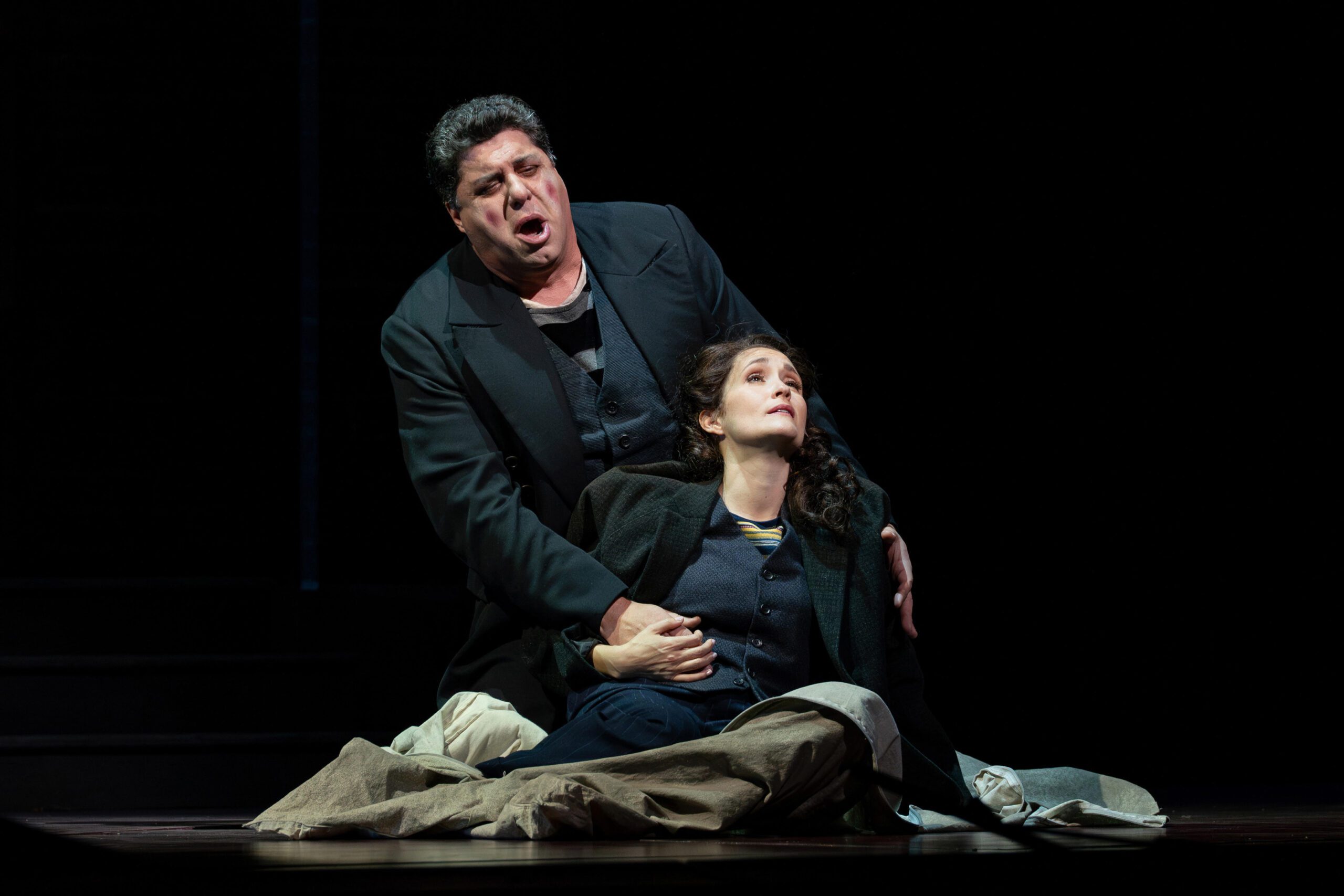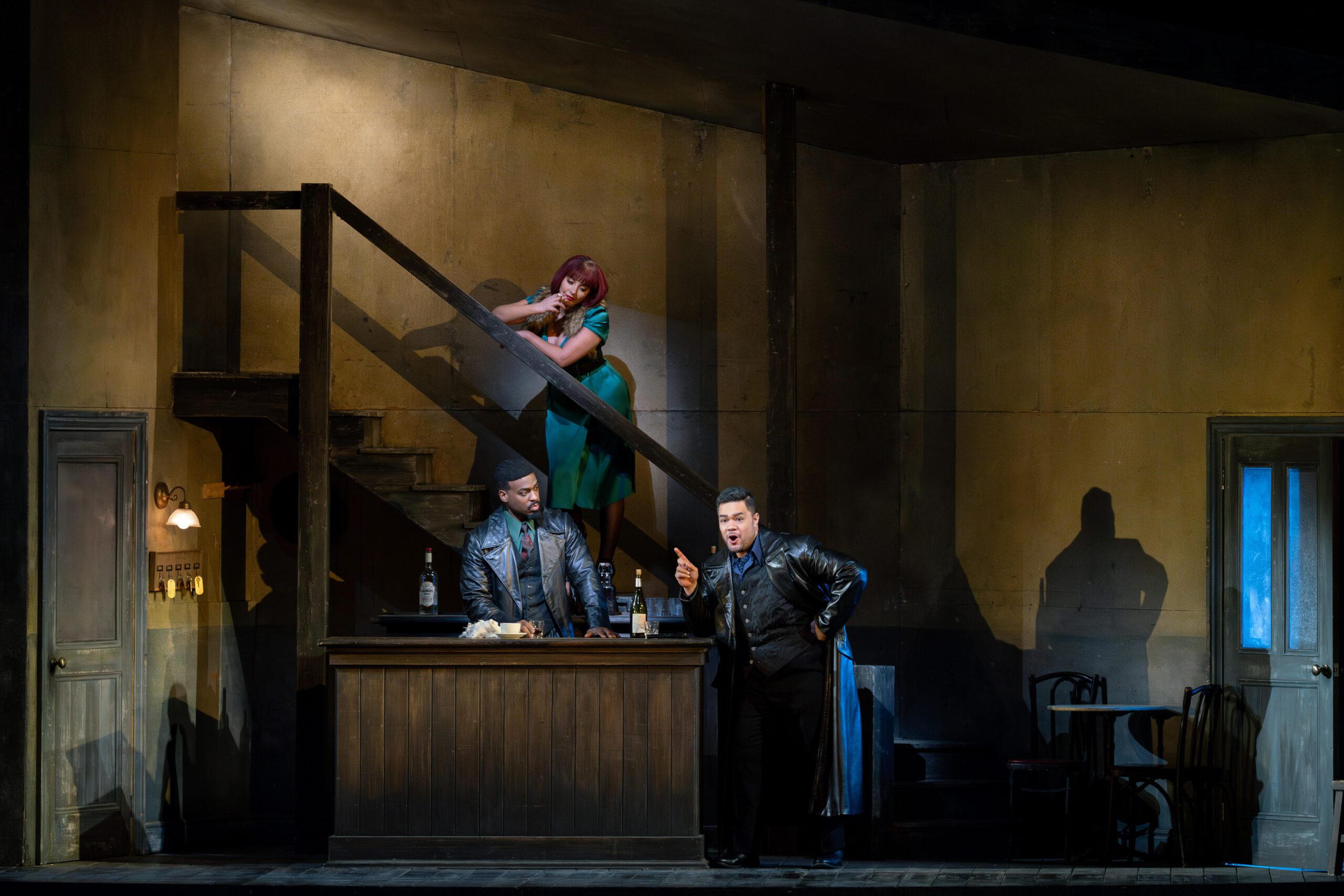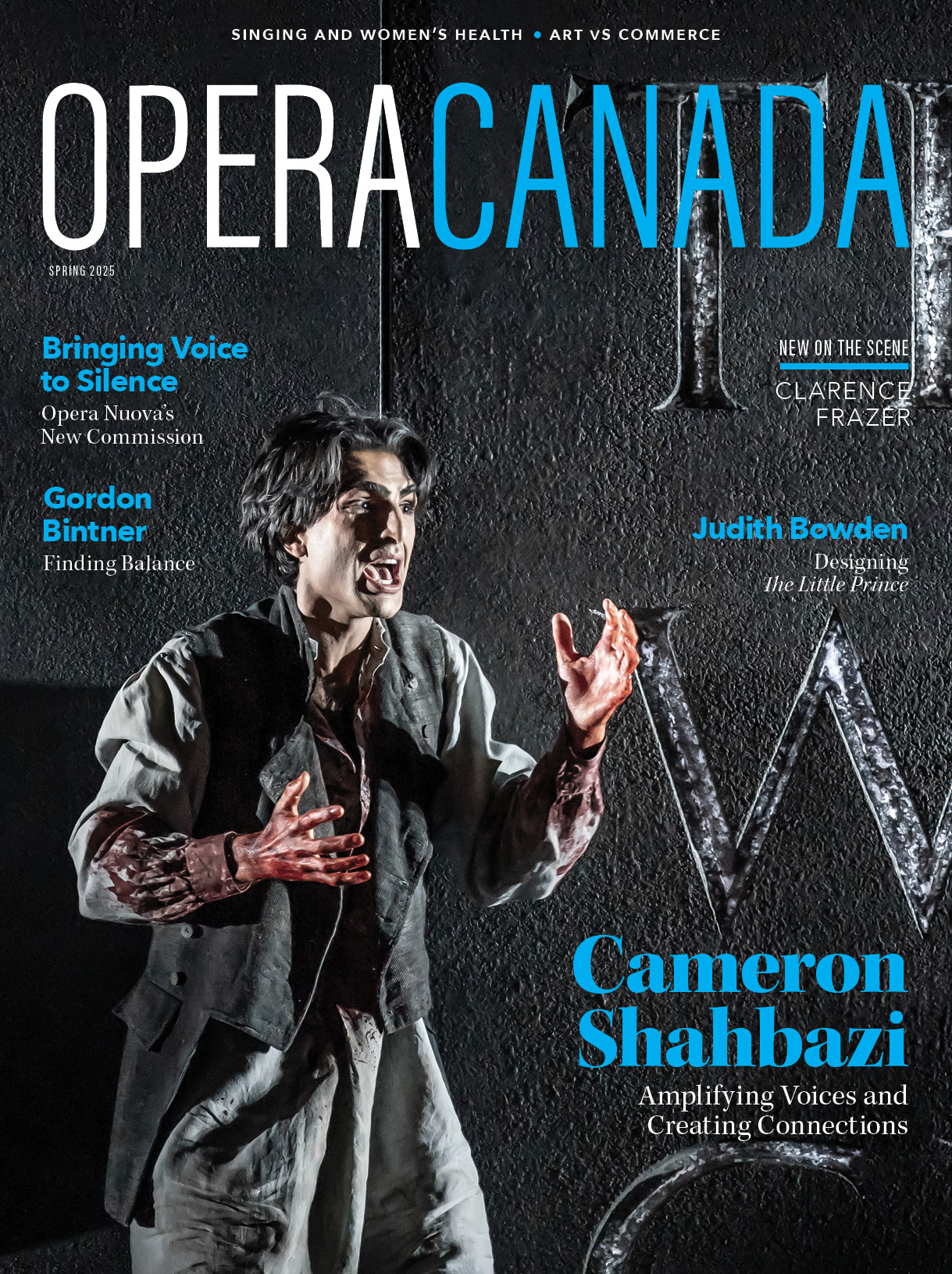Rigoletto’s bad girl, Maddalena, is a strange role. She doesn’t appear till the last act, and apart from that famous quartet she doesn’t have much to sing. Yet she’s vital to the plot: it’s she who, with her soft spot for the Duke and her brother’s soft spot for her, triggers the opera’s final tragedy. On recordings, she’s assumed the voices of many a stellar mezzo – Simionato, Cossotto, Verrett, Fassbänder – but onstage she’s usually assigned to a second-stringer: the Met’s Isola Jones, for example, with a record-holding 86 Act Three seductions to her credit in the 1970s and 1980s.
Lately, though, the company seems to be casting the role from strength. Aigul Akhmetshina made her Met debut as Maddalena two seasons back, and J’Nai Bridges played the part for this past fall’s revival. Now, for the winter run, there’s Glyndebourne’s much-acclaimed Carmen of summer 2024, Canadian Rihab Chaieb. Last October, for Canadian Opera Company, Chaieb took on another small but important Verdi role, good girl Fenena in Nabucco, who at least gets a short but quite lovely aria to sing. Maddalena gets no such thing, and without it the role’s chief demands are an alluring presence and a voice that won’t get lost in the quartet and the storm trio. Chaieb easily has both – but the next time I hear her, I hope it’s in a bigger, meatier assignment.
I hope, too, it’s in a better production than Bartlett Sher’s Rigoletto, tied with his Les contes d’Hoffmann (seen earlier this season) as the worst of this prolific Broadway-based director’s many Met stagings. Transposed to no good effect to Weimar Republic-era Germany, it unfolds on a spatially incoherent set that seldom stops turning, and Sher repeatedly upsets Verdi’s musicodramatic equilibrium with ill-timed invented business and premature entrances. By Act Three, he’s abandoned common stage sense altogether.

Photo Credit: Jennifer Taylor / Met Opera
Luca Salsi and Erin Morley as Rigoletto and Gilda at the Met
Luckily, the performance I saw on January 16th transcended its trappings. Chaieb had a strong partner in crime in bass Soloman Howard, who lacked only an ideally resonant low F to cap Sparafucile’s eerie disappearance in Act One. Blake Denson’s excellent Monterone was badly served by the staging, while as the eagerly corruptible Giovanna, that inveterate scene stealer Eve Gigliotti made her comic mark on scenes that would better have been left unstolen.
I’d been looking forward to hearing Pene Pati as the Duke, but got his cover, Zach Borichevsky, instead: he enacted the role vividly, and his lightish lyric tenor handled the music with some elegance and grace, though forte top notes were clearly not his forte. Erin Morley, vocally near-perfect – neat and light, agile and airy – was ideal, too, and gave Gilda some welcome willfulness and spunk.
But the evening belonged, as it should, to its Rigoletto. Luca Salsi eschewed the role’s high options, but I didn’t at all mind: this was no grandstanding baritone but a palpably anguished father, and his every vocal color and verbal inflection seemed impeccably gauged. The only Italian in the cast, he – and all his singing colleagues – got firm, loving, idiomatic support from the Italian in the pit, Daniele Callegari. As wrongheaded as Sher’s staging was, in matters musical this Rigoletto was very right indeed.
Opera Canada depends on the generous contributions of its supporters to bring readers outstanding, in-depth coverage of opera in Canada and beyond. Please consider subscribing or donating today.











